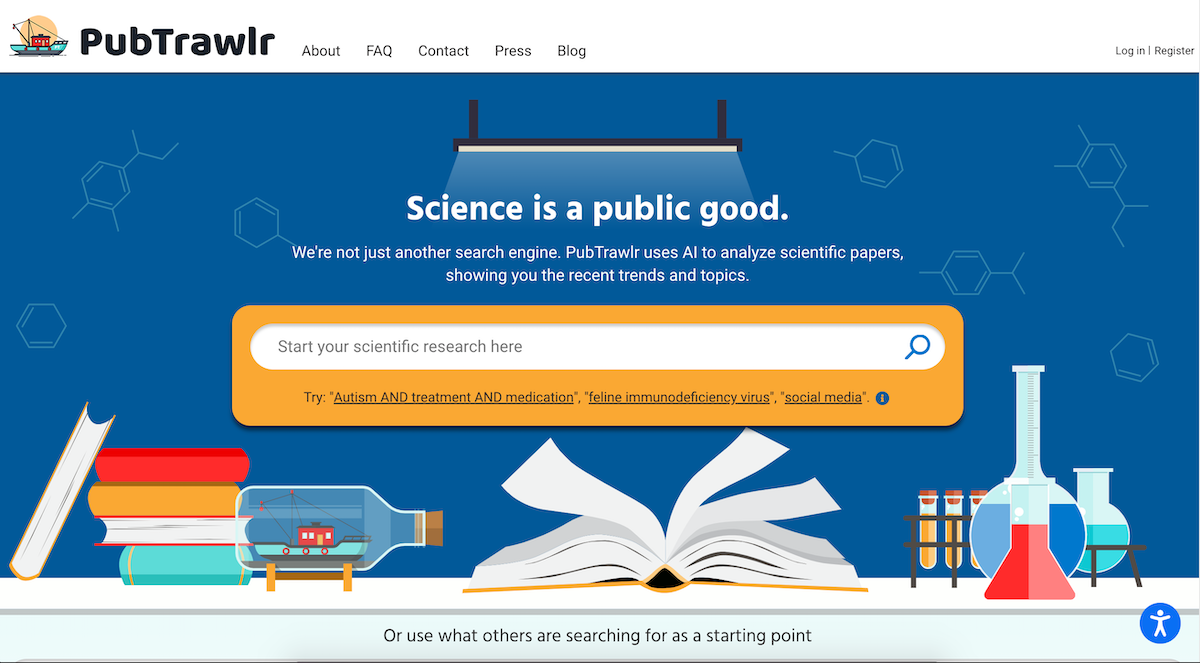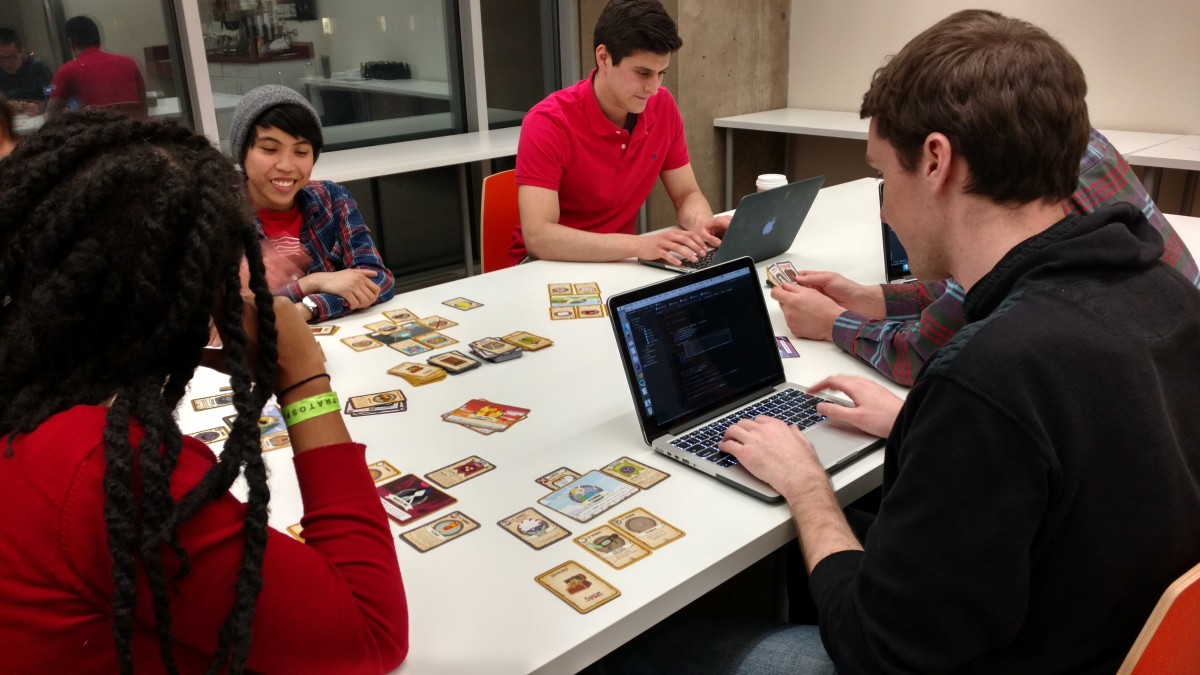Jonathan Scaccia has spent most of his 20-year career deeply entrenched in academic research — a field not often aligned with the most modern technology.
He’s performed clinical research, studied it and taught it across the medical and psychology fields, but realized that some of the newest and most forward-thinking work often doesn’t reach the light of day in scientific publications. Scaccia spent a lot of time thinking about how people engage with and consume scientific literature in his work in social services, and thought there aught to be a more efficient and tech-enabled way to help folks find what they’re looking for.
It’s why about a year and a half ago, the Reading-based researcher started work on PubTrawlr, an AI-driven platform that helps people find scientific research on demand. It’s marketed toward those who interact with scientific research daily, but also those who might be looking for medical or psych information for the first time, or for an urgent reason.
“The thinking was, ‘How could we apply some of these AI algorithms to make scientific knowledge more accessible, and potentially interesting to engage with?'” Scaccia told Technical.ly. “When you’re looking for something as important as childhood autism or breast cancer, you want to find most recent thinking in the field.”
PubTrawlr uses AI and natural language processing to pull the most recent published works on any topic for a user, using topic modeling based on hierarchical MeSH, or Medical Subject Headings — a controlled and hierarchically organized vocabulary produced by the National Library of Medicine. It currently searches the PubMed database, which indexes biomedical literature, including social services, public health, sociology, criminology and some educational literature.

Jonathan Scaccia. (Photo via Twitter)
The site offers a free option for basic searching, and a premium tier which does a bit more “heavy lifting” with the content to to organize the topics and trends. The site will flag different types of articles from those summarizing trends to findings on a specific question, and those that come from prominent journals. PubTrawlr will also simplify language or summarize where needed to be more accessible for the general public’s understanding.
“Scientific articles are written terribly — I know because I’ve written several of them — and if we want these ideas to get out there, there’s robust research finding that it can take up to 17 years,” Scaccia said of the translational lag between health research and resulting interventions. “If we want to shorten that, we have to think about different leverage points.”
Scaccia has worked in the fields of addiction and school services, as well as in the public sector and various academic settings. They’re sectors not usually used to acting as a startup would, he said: “People are not thinking about user experience.”
The PubTrawlr website has been officially operating since January 2021, and it’s gone through many iterations since then. But in recent months, Scaccia has been gearing up for more growth, with a goal of raising some venture capital in the future. He’s hiring for people to lead the company’s organizational and institutional sales team right now, and those who would be tasked with improving the site’s underlying algorithms.
As PubTrawlr’s customer base grows, it’s seen a lot of individual subscribers (he didn’t share how many), but Scaccia said he’s also been engaging institutions, especially those which have a specific mission, like hospital systems and libraries. It’s currently used by Cincinnati Children’s Hospital and Alvernia University, and has been two-time finalist in Northeastern Pennsylvania’s tecBRIDGE Business Plan Competition, the founder said.
“That [type of institution or user] really is the target, but my heart is with someone who’s parent was just diagnosed with early onset Alzheimer’s and wants the best info about it,” he said. “I eventually hope that through the work we do, that the primary literature itself becomes less intimidating.”
Before you go...
Please consider supporting Technical.ly to keep our independent journalism strong. Unlike most business-focused media outlets, we don’t have a paywall. Instead, we count on your personal and organizational support.
Join our growing Slack community
Join 5,000 tech professionals and entrepreneurs in our community Slack today!





